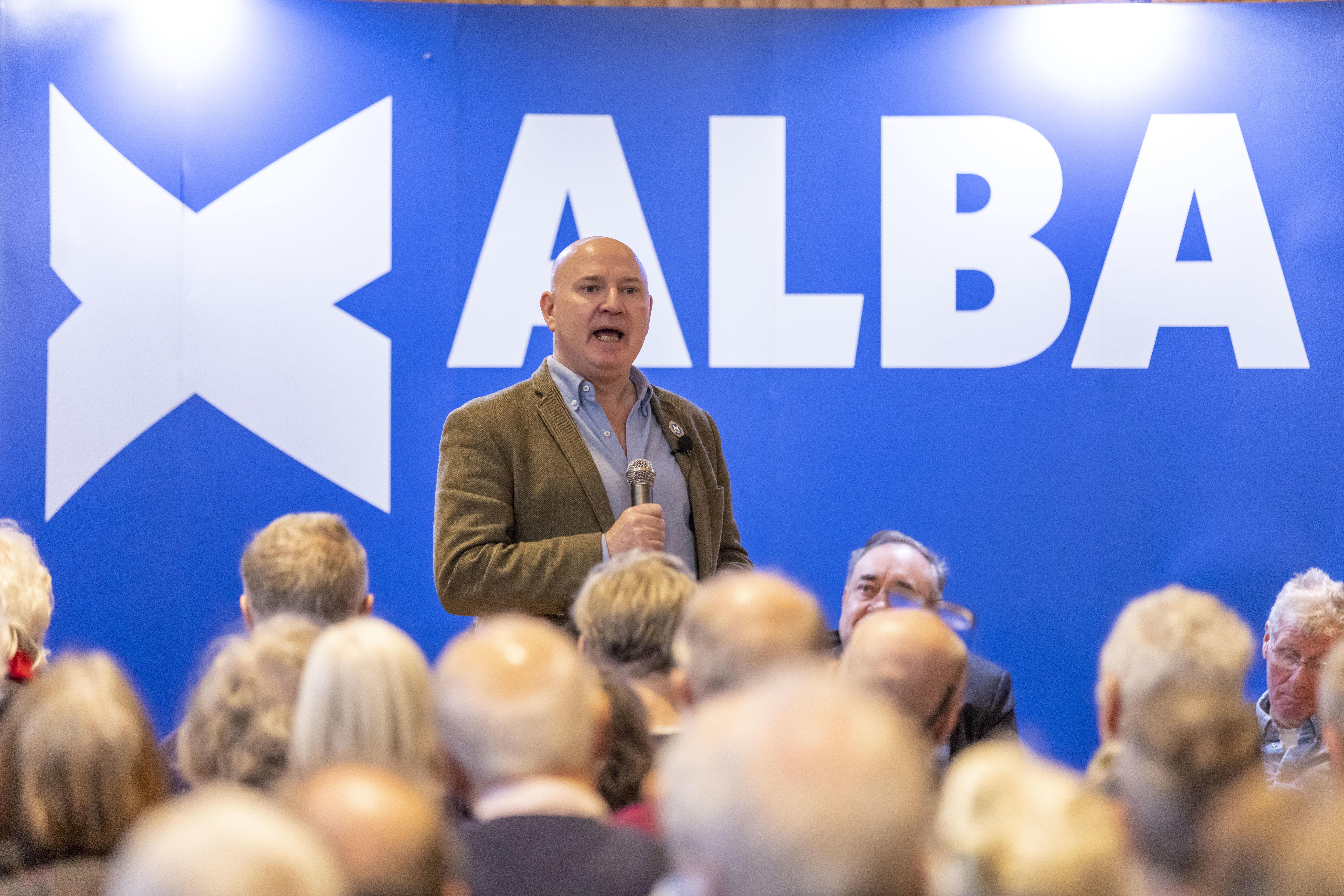MP proposes Bill to transfer powers for IndyRef2 to Holyrood
The motion for leave to bring in the proposed legislation was unopposed, but ten-minute rule bills almost never become law without Government support.

Your support helps us to tell the story
From reproductive rights to climate change to Big Tech, The Independent is on the ground when the story is developing. Whether it's investigating the financials of Elon Musk's pro-Trump PAC or producing our latest documentary, 'The A Word', which shines a light on the American women fighting for reproductive rights, we know how important it is to parse out the facts from the messaging.
At such a critical moment in US history, we need reporters on the ground. Your donation allows us to keep sending journalists to speak to both sides of the story.
The Independent is trusted by Americans across the entire political spectrum. And unlike many other quality news outlets, we choose not to lock Americans out of our reporting and analysis with paywalls. We believe quality journalism should be available to everyone, paid for by those who can afford it.
Your support makes all the difference.A Bill seeking to transfer the powers for a Scottish independence referendum to Holyrood has been introduced in the House of Commons.
Alba Party MP Neale Hanvey said that for Scotland to become independent, a “democratic mechanism” that is both “constitutional and satisfies international legal precedent” is required.
His Scotland (Self-Determination) Bill would amend the Scotland Act 1998 to transfer the Section 30 power from Westminster to Holyrood which can enable an independence referendum to be held.
The motion for leave to bring in the proposed legislation was unopposed, but ten-minute rule bills almost never become law without Government support.
The Kirkcaldy and Cowdenbeath MP said: “Scotland will only become independent as and when the majority of people of Scotland choose that path.
“Yet this requires a democratic mechanism that is constitutional and satisfies international legal precedent.
“This Bill seeks to standardise and codify such a requirement in line with the motion passed by this House, which endorsed the principles of the 1989 Claim of Right, which acknowledged the sovereign right of the Scottish people to determine the form of government best suited to their needs.”
The Bill says the power to legislate for a referendum may only be exercised where the Scottish public has demonstrated its support for the holding of such a vote and that no such referendum may be held sooner than seven years after the previous such referendum.
Making the case for his proposals and drawing parallels with Brexit, Mr Hanvey suggested Conservative MPs would have been furious, had the European Union moved to block the 2016 referendum.
He said: “Can members opposite imagine the circumstances where having entered the common market and ratified every subsequent treaty leading to the European Union, the EU Parliament moved to block or interfere with their Brexit vote, or set a limit on when and if such a vote should be held?
“The notion is of course ludicrous because democracy is not a single event but an evolving and continuous process.
“That is how civilised people and fundamental rights of freedom of thought and expression are peacefully demonstrated.
“As a member of the EU the UK Government possessed and exercised the veto, yet claimed its sovereignty was impeded by membership. Scotland has no such equivalent mechanism available to our people and remains subject to the wiles of our larger neighbour exemplified by Brexit.”
Mr Hanvey also argued the reason the UK Government denies democracy to Scotland and not to Northern Ireland lies “in the words of former prime minister John Major from 1993’s Downing Street declaration that the UK has no selfish strategic or economic interest in Northern Ireland, whereas in the case of Scotland, the opposite is true”.
He concluded his speech, saying: “The decision on Scotland’s future ultimately and rightly must rest in the hands of the people of Scotland and in the constitutional tradition of popular sovereignty in our great country.
“This Bill is neutral in its effect. It favours neither one side nor the other, but it seeks to codify the Scottish people’s right to choose their own constitutional future.”
The Bill was listed for a second reading on March 24, but it is unlikely to make further progress due to lack of parliamentary time.